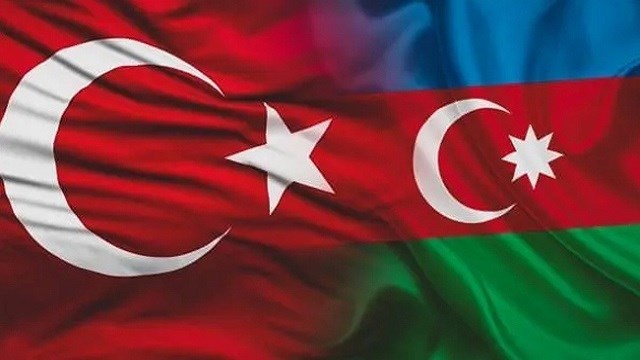
The Brotherhood Between Türkiye and Azerbaijan Also Stands Out in the Cultural Sphere
The Brotherhood Between Türkiye and Azerbaijan Also Stands Out in the Cultural Sphere
The deep-rooted bond between Türkiye and Azerbaijan is prominently reflected in culture and literature.
The 10th International Istanbul Publishing Fellowship was inaugurated at Rami Library. Organized by the Turkish Printing and Publishing Professional Association (TBYM) with support from the Ministry of Culture and Tourism and the Press and Publishing Association, the event brought together numerous national and international publishers. This year, publishers from 75 countries participated, aiming to make significant contributions to international copyright exchanges.
Esad Aslanoğlu, representing Mimta Publishing from Azerbaijan, expressed his thoughts on the program, stating that this was their fifth time attending. He noted that compared to previous years, the event had drawn even more publishers and had been executed in a more structured manner.
Over time, publishers have had the opportunity to connect with one another, Aslanoğlu explained. He emphasized that the Istanbul Publishing Fellowship has become a key meeting point for publishers worldwide. He also expressed a desire to bring a similar experience to Azerbaijan, sharing knowledge and best practices in the publishing industry. "This program serves as an excellent example," he added.
Highlighting the strong cultural and literary ties between Türkiye and Azerbaijan, Aslanoğlu remarked:
"There is no other example like this between two nations. We are brothers, and this bond is evident in our cultural and literary spheres. If you ask Azerbaijani readers about Turkish authors, they will answer as if they were their own. Many have read works by Turkish writers. Since Azerbaijan’s publishing industry is still in a developmental phase following the Soviet era, a new generation of writers and readers has emerged, and they need an example to follow. Türkiye provides that example, both nationally, culturally, and ideologically. I believe this progress will continue at an even faster pace in the future."
"Every Publisher Now Utilizes AI Tools"
Aslanoğlu also touched on the impact of artificial intelligence (AI) on the publishing industry, comparing it to other major historical advancements that have positively influenced humanity.
He acknowledged concerns regarding copyright and design issues but emphasized that publishing still heavily relies on human creativity. Therefore, he believes AI will ultimately have a positive impact on the industry.
Noting that AI tools are already being used in book cover designs, Aslanoğlu explained:
"Of course, every publisher now benefits from AI tools. We also use them for cover designs, but the key is to add an idea, a vision, and a creative thought to them. These tools can be used positively, but in the end, it is still us who do the actual work."
During panel discussions at the Istanbul Publishing Fellowship, publishers from the United States, the United Kingdom, and other countries shared their experiences. Many voiced concerns about AI models and the unrestricted use of copyrighted content online.
"There is no concrete solution yet," Aslanoğlu said. "Legal regulations are being developed, and some examples are emerging. I believe a resolution will be found in the near future."
Concluding his remarks, Aslanoğlu expressed his aspiration to establish a publishing program in Azerbaijan in collaboration with Türkiye in the coming years.